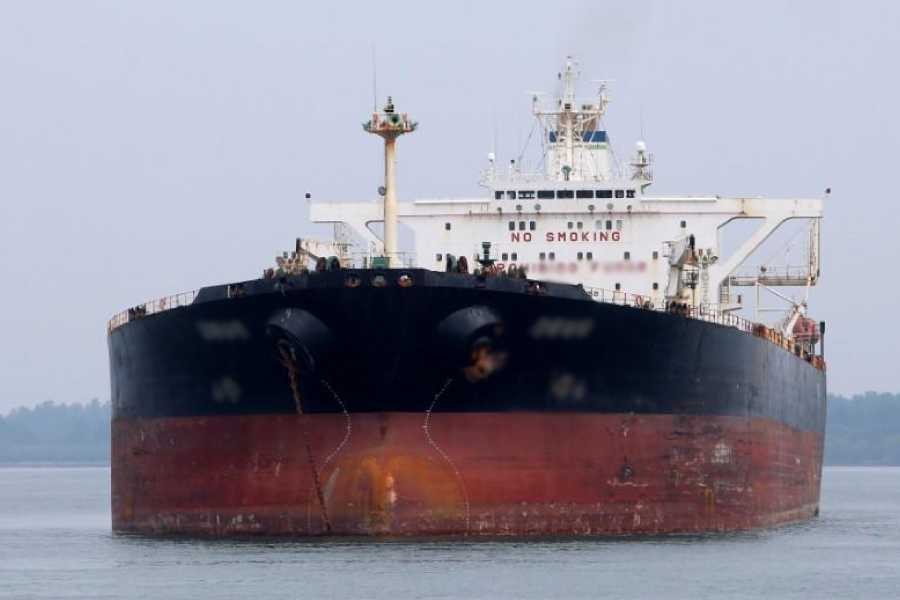Bangladesh remains one of the largest recyclers of old ships in the world, despite a decrease in the total tonnage demolished last year, according to a UNCTAD report.
The country has become the burying ground for more than one-fourth of the world's total tonnage of vessels sold for demolition in 2017, says the United Nations Conference on Trade and Development (UNCTAD) annual Maritime Review that came out last month.
Only neighbouring India has recycled more ships in terms of tonnage than Bangladesh during this period, the UNCTAD figures show.
Last year, the global report says, the gross tonnage of vessels sold for demolition around the world stood at 22.916 million tonnes.
In contrast, the gross tonnage of vessels sold to Bangladesh was 6.26 million tonnes during the same period.
This means, around 27.32 per cent of the total ship demolition in the world took place in Bangladesh last year.
Still, this is a significant reduction from 2016 when a total of 8.24 million tonnes of vessels were demolished at the shipbreaking yard of Chattogram.
The reduction is, however, part of the worldwide trend- as globally, the number of ship demolitions in 2017 were almost a quarter less in gross tonnes than in 2016, something the UNCTAD report termed 'an indicator of improved market optimism'.
When asked about the reason for this trend, the local industry insiders pointed at the rising prices of ship demolition in the world market.
"The global price of ship demolition per tonnage is seeing an upward trend for more than a year," said Nazmul Islam, assistant secretary of the Bangladesh Ship Breakers and Recyclers Association.
"The tonnage price of worn-out ships has hovered in between US$ 400 and US$ 450 in recent times. This is significantly higher than the usual," he added.
Local auto re-rolling and steel mills have long been a major customer of the local ship breakers-as the scraps produced from the ship-breaking yards are major sources of raw materials for these mills.
The industry insiders, however, noted that India and China were becoming major alternative sources of raw materials for the re-rolling mills.
"Due to treaties like South Asian Preferential Trading Arrangement (SAPTA) and the associated low tariffs, rerolling mills are now importing their raw materials at a far cheaper rate from countries like India," Nazmul Islam said.
"As a result, they are less interested in buying the raw materials from domestic ship-breakers," he observed.
Meanwhile, the UNCTAD report noted that tankers had dominated the ship recycling scene among all kinds of vessels in 2017.
"Bulk carrier and container ship scrapping slowed in line with improved market conditions but tanker recycling increased," the report said.
This increase in tanker recycling is reflected in the country statistics of Bangladesh as 3,245 thousand tonnes or over half of the total tonnage of vessels recycled in the country consisted of oil tankers.
Indeed, Bangladesh was the biggest recycler of oil tankers in the world last year as more than 54 per cent of all oil tanker scrapping in the world took place in the country in 2017, the UNCTAD data showed.
Despite being one of the largest in the world, shipbreaking industry in Bangladesh has often been subject to scrutiny from both home and abroad due to its questionable environmental and labour standards.
Earlier this year, international campaign group 'Shipbreaking Platform' in its annual report, termed Bangladesh's shipbreaking industry "dirty" and "dangerous".
"Severe pollution to the marine environment, hazardous waste dumping, appalling working conditions causing many severe and fatal accidents, as well as the illegal exploitation of child workers are amongst the main concerns," the report said.
Insiders within the shipbreaking industry, however, maintained that their environmental and labour practices have "notably improved" in the last few years.
"A lot of dangerous work that used to be done manually has been automated in recent years, which have significantly reduced risks to labourers," said Abu Taher, president of the Bangladesh Ship Breakers Association.
Published annually since 1968, the Review of Maritime Transport is a flagship publication of the UNCTAD.
The report provides analysis of structural and cyclical changes affecting seaborne trade, ports and shipping, as well as an extensive collection of statistical information.


